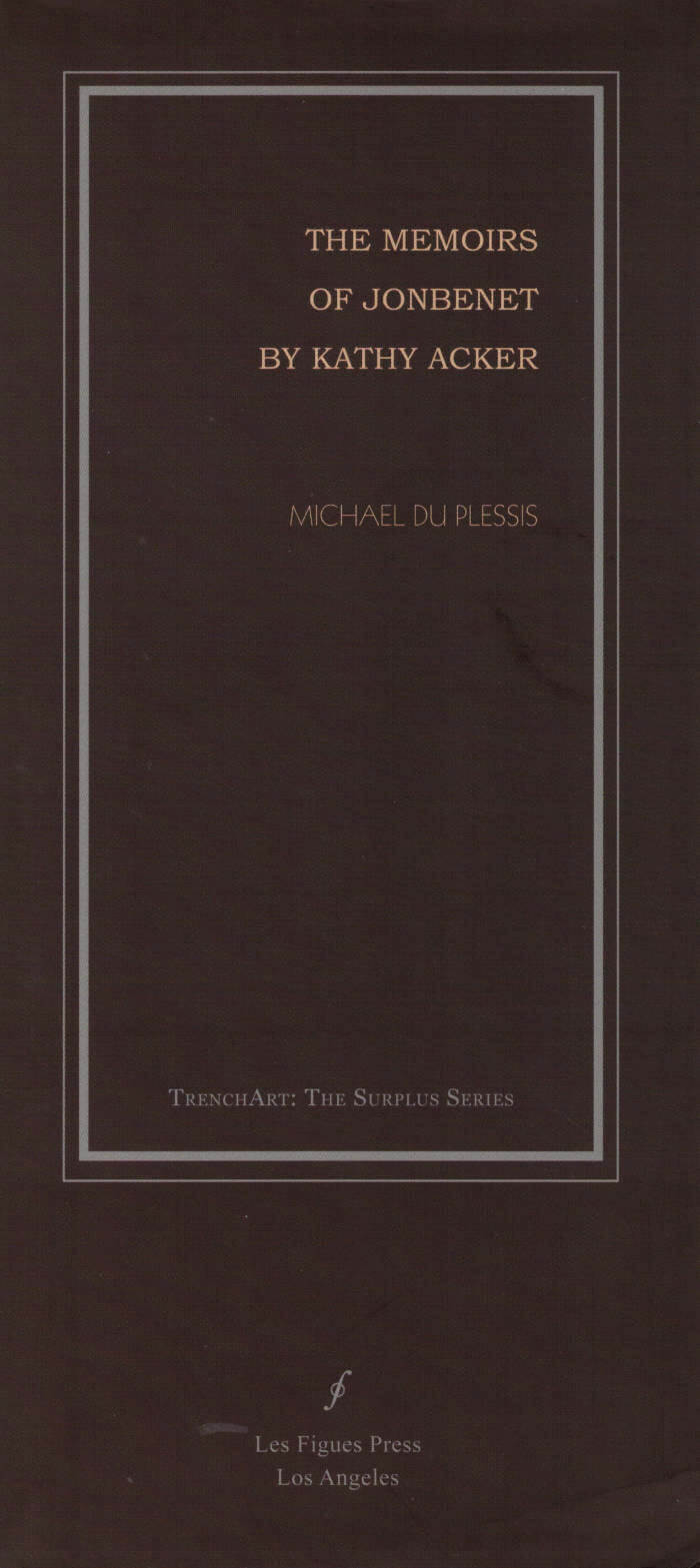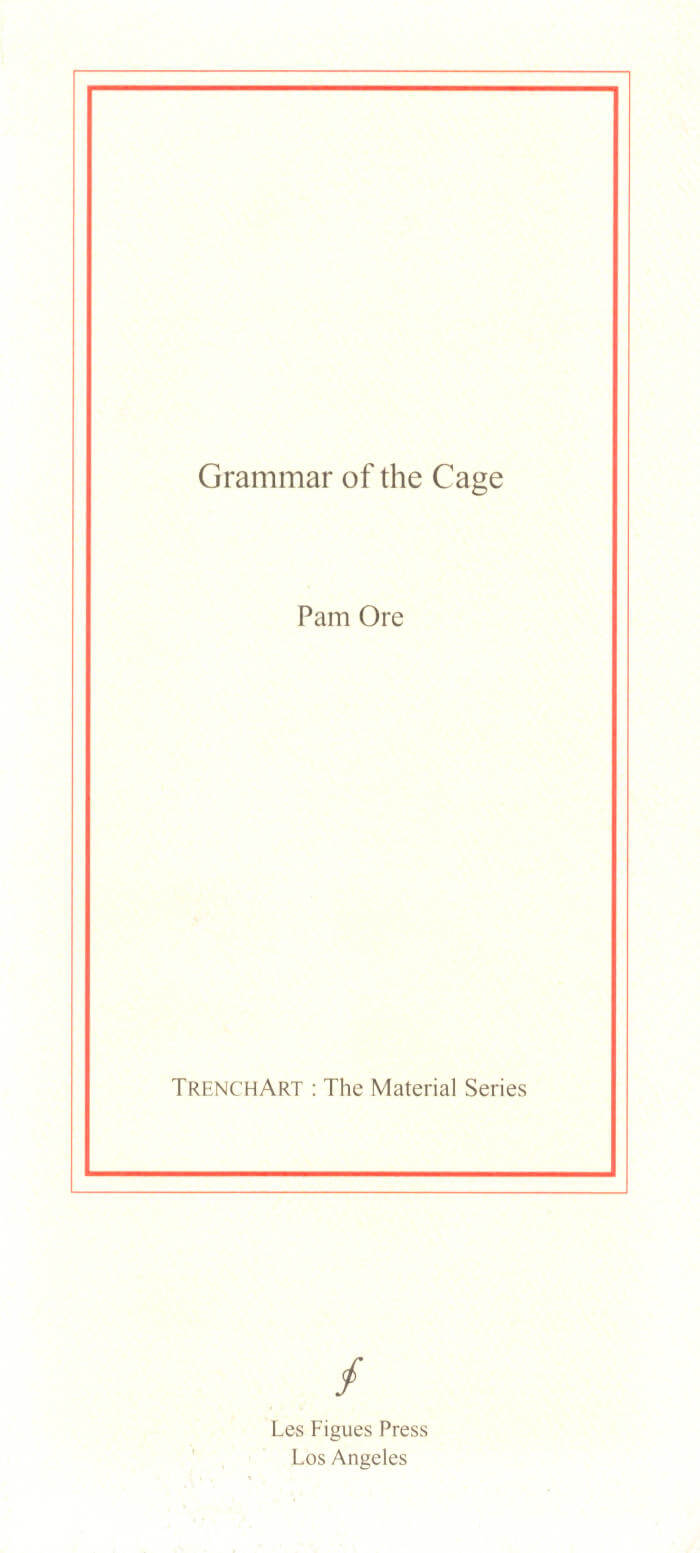
The Memoirs of JonBenet by Kathy Acker
JonBenet meets Kathy Acker in a rollicking coming-of-age tale set in the snow globe of Boulder, Colorado. With guest appearances by Little Lord Fauntleroy, H. P. Lovecraft, the Blue Fairy, a wind-up Walter Benjamin, a soft-toy Cthulhu, O (from Story of O), and many more. Neither tribute nor pastiche, The Memoirs of JonBenet by Kathy Acker investigates the "self" of very-late-capitalism in a collage of all that is right, and terribly wrong, in America.
The Memoirs of JonBenet by Kathy Acker is published as part of the TrenchArt: Surplus Series, with an introduction by Peggy Kamuf and visual art by Klaus Killisch.
Michael du Plessis teaches Comparative Literature and English at the University of Southern California, where he is also completing a masters degree in Professional Writing. Du Plessis has written about a wide variety of subjects, from Goth culture to the French fin-de-siècle. He has also performed at Highways and at the MAK Center/Schindler House, amongst other venues.







